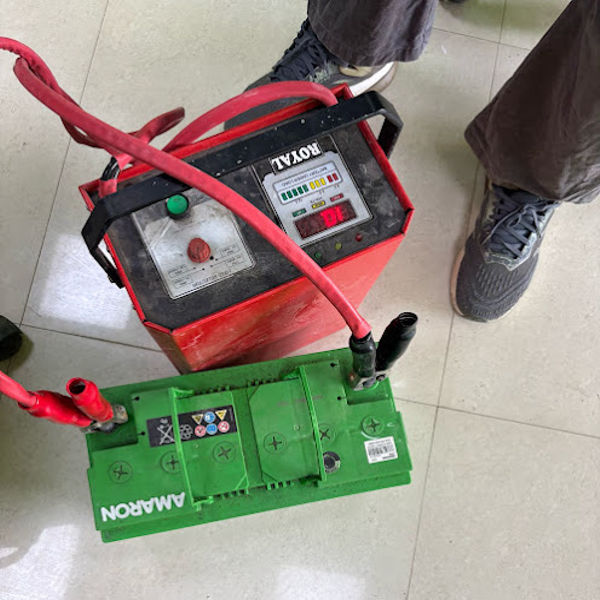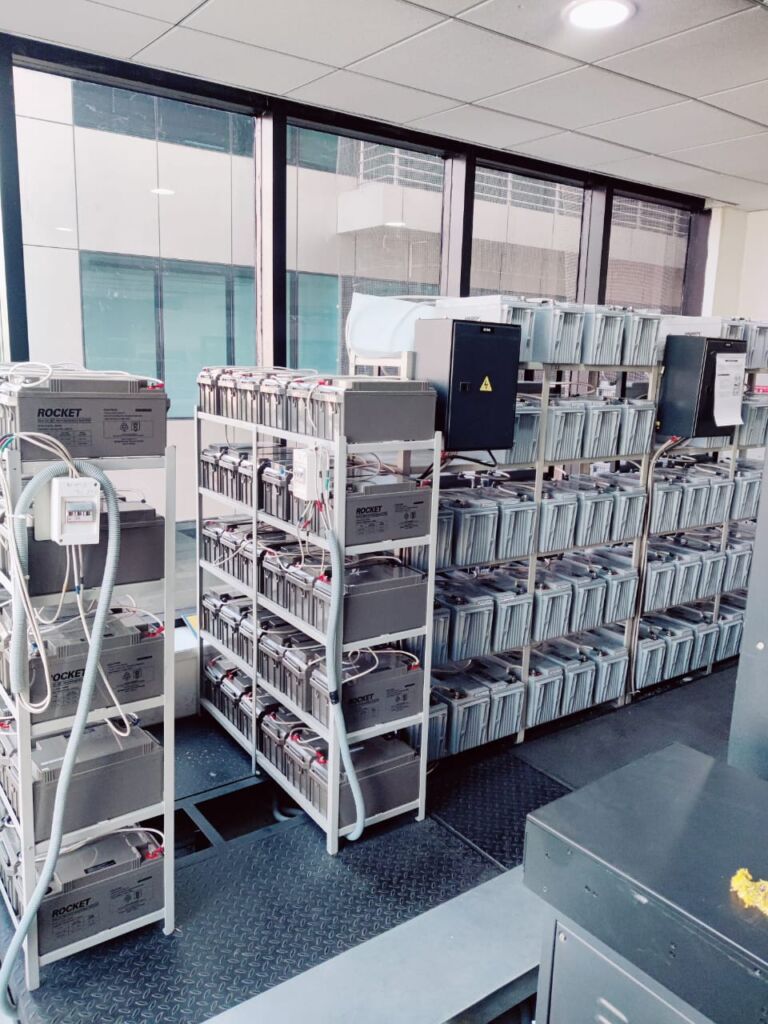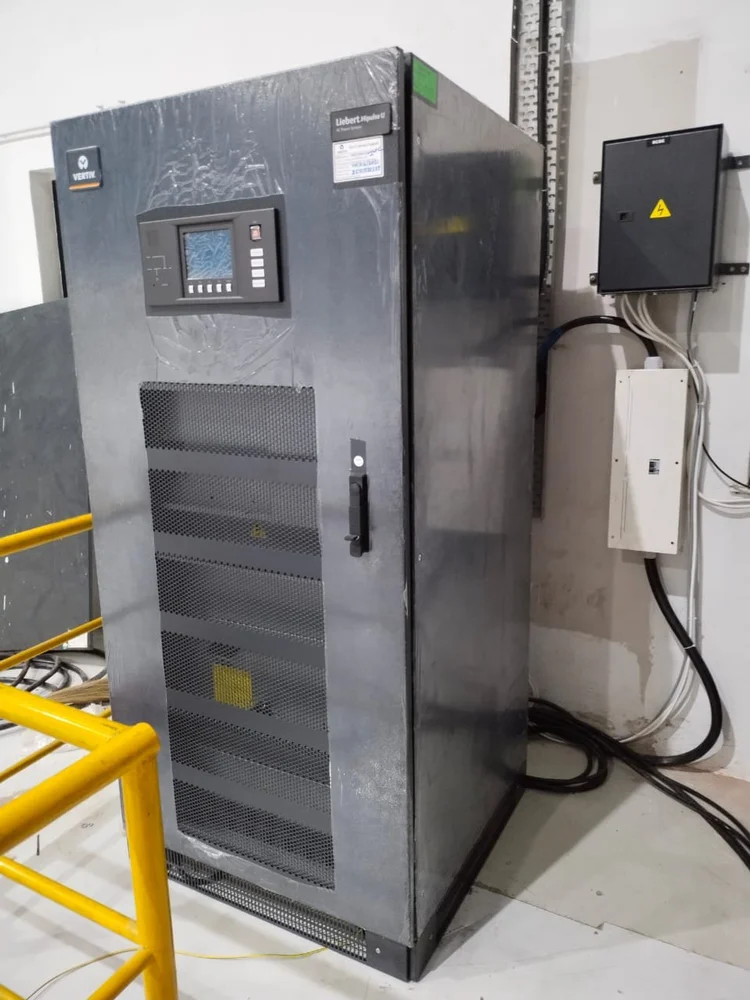Emerson 3-Phase Ups In Manesar
Emerson 3-Phase UPS (Uninterruptible Power Supply) systems are high-quality, reliable power backup solutions typically used in industrial, commercial, and critical infrastructure applications. These systems are designed to provide uninterrupted power to sensitive equipment, preventing downtime due to power interruptions, voltage fluctuations, or other electrical issues.
Key Features of Emerson 3-Phase UPS:
Power Capacity:
3-Phase UPS systems come in a wide range of power capacities, generally from 10 kVA to 800 kVA or even higher, depending on the model.
Suitable for medium to large-scale facilities like data centers, hospitals, manufacturing plants, and office buildings.
Technology:
Double Conversion Online Technology: Emerson’s 3-phase UPS systems typically use online double conversion technology, meaning that the inverter constantly supplies clean, regulated power to the load while the battery is charging.
Efficiency: High-efficiency models (up to 96% or more) reduce energy consumption and operating costs.
Battery Management: Integrated advanced battery management for monitoring health, charge, and backup times.
High Availability:
Designed to provide reliable power for mission-critical applications.
Hot Swappable Batteries: In some models, batteries can be replaced without shutting down the UPS, ensuring uninterrupted power supply.
Scalability: Many models allow for modular expansion, meaning you can add additional capacity as needed.
Input/Output Voltage:
Input Voltage: Common input voltages are 380V, 400V, and 415V (3-phase).
Output Voltage: Typically 208V, 220V, 230V, or 400V for 3-phase systems, depending on the regional power grid standards.
Power Factor: Emerson UPS systems usually have a high power factor of 0.9 or higher, improving efficiency.
Advanced Features:
LCD/LED Display: Provides real-time data on UPS status, battery health, load levels, and alarms for easy monitoring.
Remote Monitoring: Allows remote access for monitoring via web or SNMP (Simple Network Management Protocol) for real-time alerts and diagnostics.
Bypass Capability: If maintenance is required or the UPS is malfunctioning, the system can transfer to bypass mode to avoid downtime.
Design and Durability:
Compact Design: Many models are designed to be space-efficient without compromising on power or cooling needs.
Rack-Mountable or Tower Formats: Depending on the installation space, Emerson offers both tower-style and rack-mounted designs.
Thermal Management: These UPS systems typically include advanced cooling systems to maintain efficient operation and prevent overheating.
Applications:
Data Centers: Ensures uptime for servers and networking equipment.
Industrial Equipment: Protects critical machinery and automated systems from power failures.
Telecommunications: Keeps communication systems running without interruption.
Hospitals: Supports life-saving equipment and systems that require constant power.
Commercial Buildings: Ensures backup power for office systems and equipment.
Maintenance and Service:
Smart Battery Testing: Advanced systems monitor the health of batteries and alert users when maintenance or replacement is required.
Serviceable Parts: Emerson provides comprehensive support and service contracts to ensure your UPS remains in optimal condition.
Proactive Monitoring: With remote monitoring and diagnostic tools, faults can be detected before they impact operations.
Popular Models:
Emerson (now part of Vertiv) offers various UPS models under different series, such as:
Vertiv Liebert® ITA2: A high-efficiency 3-phase UPS solution for small to medium-sized applications.
Vertiv Liebert® EXL S1: A modular UPS system that offers scalability and high availability.
Vertiv Liebert® NXL: A large capacity 3-phase UPS designed for data centers and industrial applications.
Advantages of Emerson 3-Phase UPS:
High Reliability: Ensures critical equipment remains powered during power failures or fluctuations.
Advanced Technology: Features like online double conversion, modular design, and remote monitoring provide superior performance and flexibility.
Energy Efficiency: Many Emerson UPS systems are highly efficient, reducing operating costs and environmental impact.
Scalability: As your power requirements grow, Emerson's modular systems can easily expand to meet increased demand.
Conclusion:
Emerson 3-Phase UPS systems are excellent solutions for businesses and facilities that require high uptime and reliability. With their advanced features, efficient energy use, and robust design, they provide essential power protection for critical infrastructure. Whether you're in need of a UPS for a small office or a large data center, Emerson offers scalable and reliable power backup systems that ensure uninterrupted operation.
Send
Message








